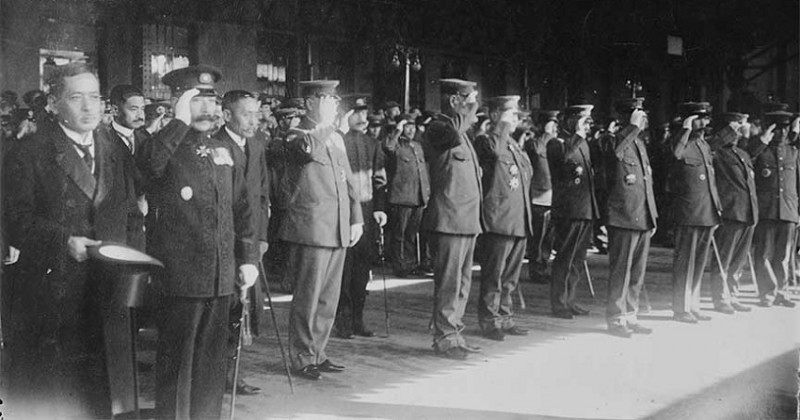
On August 23, 1914, Japan declared war on Germany, marking a significant turning point in the early stages of World War I. Although the global conflict had officially begun on June 28, 1914, following the assassination of Archduke Franz Ferdinand, Japan’s entry into the war introduced a new dimension to the already complex international situation.
Background of World War I
World War I, often referred to as "The Great War," erupted due to a combination of rising nationalism, militarism, and intricate alliances among the world's major powers. The conflict initially involved the major European powers—Germany, Austria-Hungary, Britain, France, and Russia—but soon spread across continents, drawing in nations from around the globe.
The war officially started on July 28, 1914, when Austria-Hungary declared war on Serbia in response to the assassination of Archduke Franz Ferdinand. As alliances triggered a domino effect, Germany declared war on Russia and France. The war quickly expanded beyond Europe, involving colonial empires and other world powers.
Japan's Entry into the War
Japan, though geographically distant from the European theatre, had its own interests in the conflict. At the time, Japan was an emerging imperial power with a strong desire to expand its influence in East Asia and the Pacific. Its rapid modernization following the Meiji Restoration had transformed Japan into a formidable military and industrial power, eager to secure its place on the global stage.
When the war broke out in Europe, Japan was a part of the Anglo-Japanese Alliance, signed in 1902. This agreement obliged Japan to come to the aid of Britain if British interests in Asia were threatened. At the time, Germany held colonial territories in the Pacific and China, including the strategic port of Tsingtao (now Qingdao), which posed a threat to British and Japanese interests in the region.
On August 15, 1914, Japan issued an ultimatum to Germany, demanding the withdrawal of German ships from Japanese and Chinese waters, as well as the surrender of the German-controlled territories. Germany, preoccupied with its European front, did not comply. Eight days later, on August 23, Japan formally declared war on Germany.
Japan's Role in the War
Following its declaration of war, Japan quickly mobilized its forces to seize German territories in Asia. The most significant military engagement took place at the Siege of Tsingtao, a German-controlled port in Shandong, China. Japanese and British forces launched a joint assault on Tsingtao, which resulted in a decisive victory for the Allies in November 1914.
Japan’s actions during the war were largely confined to the Asia-Pacific region, where it seized several of Germany’s colonial possessions, including the Marshall, Mariana, Caroline, and Palau islands. These territorial acquisitions allowed Japan to expand its sphere of influence in the Pacific and establish a foothold that would later play a crucial role in its involvement in World War II.
Japan's Gains and Impact on Global Politics
By the end of World War I, Japan had successfully consolidated its power in the Pacific. Its participation in the conflict was rewarded during the post-war negotiations at the Treaty of Versailles in 1919. Japan gained control over the former German colonies in the Pacific and was granted a seat at the table as one of the victorious Allied Powers. These gains further solidified Japan’s position as a dominant power in East Asia.
However, Japan’s imperial ambitions and its rising influence in the Pacific would eventually lead to tensions with other world powers, particularly the United States, which viewed Japan’s expansion with increasing concern. These tensions would resurface in the lead-up to World War II.
Japan's declaration of war on Germany on August 23, 1914, marked its formal entry into World War I and set the stage for its expansion in the Asia-Pacific region. While Japan’s involvement in the conflict was limited to the East Asian theatre, its role in the war had far-reaching consequences for global politics. The territorial gains and increased influence Japan secured during the war would play a pivotal role in shaping the geopolitical landscape of the 20th century, ultimately setting the stage for future conflicts.